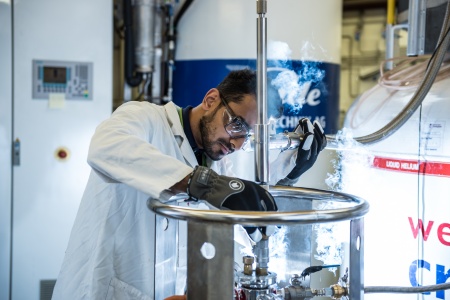
STEMM-CHANGE is working with other teams at the University of Nottingham to complement activities in the project, by offering an opportunity to apply for funds for major projects that will make a meaningful impact to STEMM-CHANGE EDI objectives. Five diverse sub-projects submitted from across the University were successfully funded in the first round of applications and are due to complete by the end of July 2020.
Summary of funded sub-projects – 1 January 2020 to 31 July 2020
PAW Package: Digital tool for managing chronic pain at work
Dr Holly Blake, Associate Professor of Behavioural Science
School of Health Sciences
Chronic pain affects two fifths of the UK population, meaning that 28 million adults are living with pain lasting 3 months or longer. Existing tools focus specifically on symptom reporting, treatment programmes or exercise and do not address barriers to work, facilitators of work ability, or pain self-management strategies. This project will develop an online tool for staff with chronic pain, and provide evidence-based advice on how employees can self-manage their condition at work. A comprehensive number of stakeholders will be consulted, with best practice guidelines defined and signposting to work-capacity advice and support, self-management strategies and advice on adjustments to working environments.
Development of guidance and support for racial discrimination and diversity in veterinary profession
Dr Jasmeet Kaler, Associate Professor in Epidemiology and Farm Animal Health
School of Veterinary Medicine and Science
The UK veterinary profession is mainly white with only 3% of vets as non-whites; a similar percentage represents race diversity among staff and students at the SVMS (School of Veterinary Medicine and Science). A recent survey by VetFutures (initiative by Royal College of Veterinary Surgeons) indicated that around 24% vets experienced discrimination and race discrimination was one of the top two causes for most incidents. Currently there is lack of awareness and guidance among SVMS staff and students around issues related to diversity. The project will run 3 focus groups to understand staff concerns, raise awareness for race diversity by organising an event with invited speakers from veterinary cultural diversity society and develop guidance and support material for SVMS staff and students.
Academic Insight Placements
Leah Ridgway, Associate Professor in Engineering and Chris Birchall, Careers and Employability Service
Engineering & Careers and Employability Service
This project aims to address career development for early career researchers in the Faculty of Engineering through supervisory activity. Research Assistants (postdoctoral researchers) employed at level 4 in the Faculty of Engineering will be given the opportunity to supervise a two-week research placement for an undergraduate student. This scheme allows staff to develop supervision skills, enabling them to gain valuable insight into this aspect of academic jobs, and evidence this when applying for future positions. In this way, we will address the “pipeline problem” experienced by minorities in academia through this pilot programme.
Gender differences in reference letters: Evidence from the Economics Job Market
Markus Eberhardt, Associate Professor School of Economics
Nottingham School of Economics
Academia, especially in the field of economics, is facing substantial scrutiny for prevailing evidence of gender discrimination. Recent empirical work has studied many aspects of the ‘leaky pipeline’ – uncovering gender bias in teaching evaluations, the publication process, conference admissions, and tenure and promotion decisions. However, little is known about gender discrimination in the first step of an academic career, the junior ‘job market’. Our project analyses the text of over 8,500 reference letters written in support of almost 3,000 candidates who have applied for positions between 2017 and 2020. Using machine-learning algorithms we study gender differences in letter attributes, controlling for applicant background and characteristics of the letter writer. This is the first study to investigate a crucial element of ‘gatekeeping practice’ in the junior hiring market in economics.
Development and Pilot of a Passport Tool to Support Staff with a Disability
Sarah Johnson, Head of Operations Faculty of Science and School of Biosciences
Biosciences/Veterinary Medicine & Science
The concept behind this project is to engage and support with staff with a disability to identify any new or ongoing difficulties when moving between different roles within the University. Starting at this initial research phase of the project, the project will develop a passport tool to support staff with a disability, which enables the disabled staff member’s needs to be clearly articulated in advance of them taking up the new. This will allow and encourage the line manager to put in place any adjustments needed to support the new staff member in their role. This will facilitate a smooth transition for the staff member, whilst providing a positive and enabling experience, potentially leading to increased productivity and well-being in the role.


